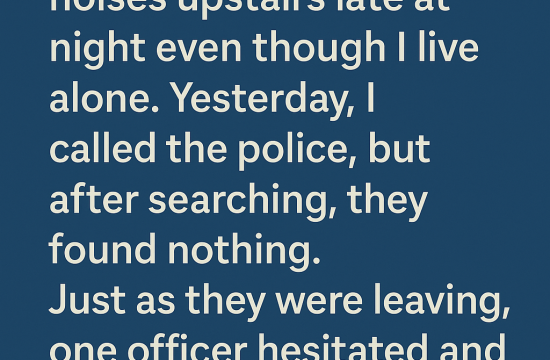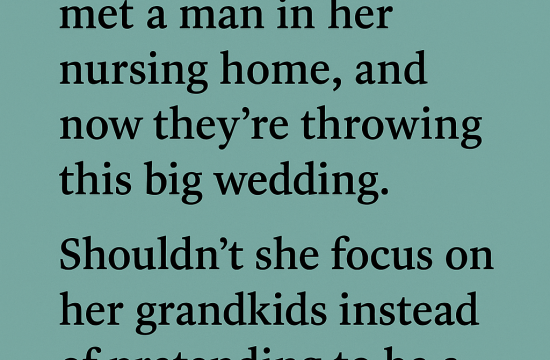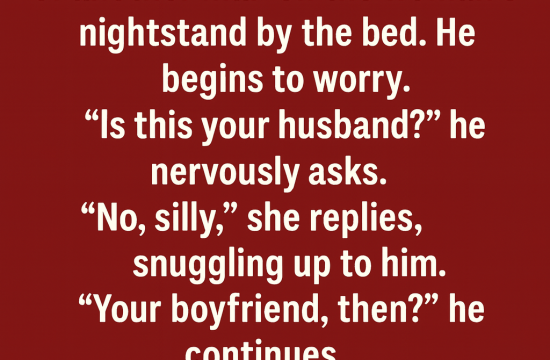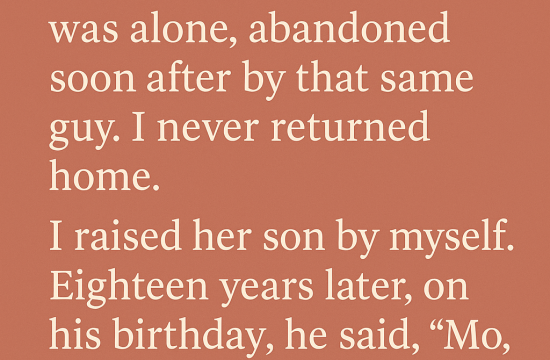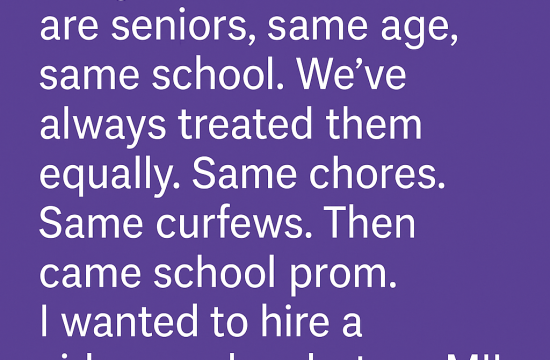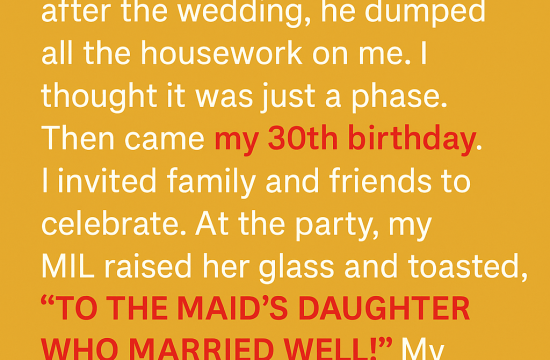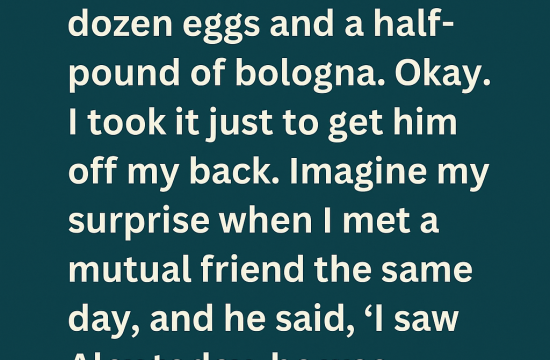My MIL Gave My Nine-Year-Old Daughter a ‘Family Photo’—But Left Both of Us Out to Show We Don’t Belong
Emma is the center of my world.
She’s my heart walking around outside my body, my reason for getting up every morning, and my whole universe wrapped up in a nine-year-old girl with messy brown hair and the biggest laugh you’ve ever heard.
Emma isn’t biologically my husband Brian’s daughter.
Her real father, Max, died in a car accident when I was 27 and she was just two years old. The months after losing Max were the darkest of my life. I was a grieving widow raising a toddler alone, working double shifts at the bank just to keep a roof over our heads.
Then I met Brian at a coffee shop.
Emma had thrown a tantrum and spilled her juice box all over the floor. I was on my hands and knees, cleaning it up while she screamed. That’s when Brian knelt down and helped me. He even made Emma laugh by pretending to slip on the sticky floor.
“Kids are tough,” he said, smiling at both of us. “But they’re worth it.”
Those words stayed with me. Most men ran when they heard I had a child. But Brian leaned in. He welcomed us both from the beginning.
We dated for two years, and he never once made me feel like Emma was baggage. He took her to father-daughter dances, taught her how to ride a bike, and helped with her homework like it was the most natural thing in the world.
Watching them together made me believe in fate again.
We got married three years ago, and I thought we’d finally found our happily ever after. But there was one person who never truly embraced our little family: Brian’s mother, Carol.
Carol was never overtly rude—but her silence said everything. The way she looked at Emma, the way she treated her differently from the other grandchildren, made her feelings obvious.
At Christmas, Emma would receive a modest box of crayons, while her cousins got extravagant gifts and designer clothes. Carol never said Emma wasn’t family. But she never once said she was, either.
From the start, Carol didn’t want Brian to marry me—especially because I had a daughter. I once overheard her in the kitchen calling Emma “extra baggage.”
“You’re 35,” she told Brian. “You could find someone without all these complications.”
Brian shut her down. “Emma isn’t a complication, Mom. She’s my daughter. And if you can’t accept her, then you don’t accept me.”
Still, Carol clung to her passive-aggressive digs. She’d talk about “blood family” and “real grandchildren” just loud enough for us to hear, then brush it off with a laugh when we called her out. We tried to keep the peace, mostly for Emma’s sake.
But last month, at Emma’s ninth birthday party, Carol crossed a line that changed everything.
The party had been perfect—balloons, streamers, a unicorn cake. Emma, in her favorite blue dress, was running around the backyard, laughing with her friends.
Then it was time for gifts. Emma tore into the wrapping paper with excitement until she reached a gift bag from Carol.
“It’s from Grandma!” she said brightly.
Carol sat across the yard with a smug little smile.
Inside was a beautiful silver picture frame engraved with the words “Family Is Forever.”
Emma held it up, admiring the shine. “Open it, sweetheart,” Carol said, her voice sickly sweet. “You’ll love it.”
Inside was a collage of family photos—from last summer’s lake trip. There was Carol. Brian. Brian’s sister Sarah, her husband, their two kids. Even Carol’s late husband in an older photo tucked in the corner.
But not me. Not Emma. Not a single photo of us.
Emma stared at it, confused. I stared at Carol, already knowing.
Then Carol stood and, with a casual cruelty that chilled me, said, “I just wanted her to have a family photo that actually makes sense. Isn’t this just the perfect gift?”
I felt the blood drain from my face.
That frame wasn’t a gift. It was a message.
Emma quietly set the frame down on the table and turned to Carol. Her voice was steady, but heartbreakingly small.
“Grandma, you don’t love me,” she said. “And that’s okay, don’t worry. You want Daddy to have a better family, not one with someone like me. Kids at school say stuff like that too, so I’m used to it. I just feel bad that you’re sad because of me. I love Daddy and Mommy. And I just thought maybe one day you’d love me too.”
Silence fell over the backyard.
Carol blinked, stunned. So was everyone else.
Without a word, she turned and walked into the house, leaving the photo frame on the table like a tombstone.
I ran to Emma and pulled her into my arms. She didn’t cry. She didn’t say anything. She just stood still, like this was something she’d been carrying for a long time.
“I’m so sorry, baby,” I whispered into her hair. “I’m so, so sorry.”
Brian stormed into the house. I could hear shouting through the kitchen window. Years of frustration finally being poured out.
Outside, the other parents began quietly packing up. The kids didn’t want to leave, but their parents gave them no choice. The party was over.
Fifteen minutes later, Carol came back out. Her eyes were red and puffy. She knelt beside Emma and took her hands.
“I’ve been so, so wrong,” she said. “You didn’t do anything wrong, sweet girl. I think I just… I was afraid of losing my son. And I let that fear turn into something ugly. But you’re not a mistake. You’re the brightest part of this family. And if you’ll let me… I’d like to start over. Maybe we can make our own memories together.”
Emma looked up at me, silently asking if it was okay. I nodded, even as my heart ached.
Then she hugged Carol.
Brian stood beside me, holding my hand. In that moment, the wall Carol had built for three years finally began to crack.
In the months that followed, she tried. She came over for Sunday breakfasts. She helped Emma bake cookies. She gave real gifts. Real hugs.
And then, this summer, Carol surprised us.
She arranged a professional family photo shoot. Matching outfits, a picnic theme. At the center of every photo was Emma—smiling, joyful, loved.
The one that sits on our mantle now shows all of us together: me, Brian, Carol… and Emma, laughing in the middle.
That’s what a real family looks like.




